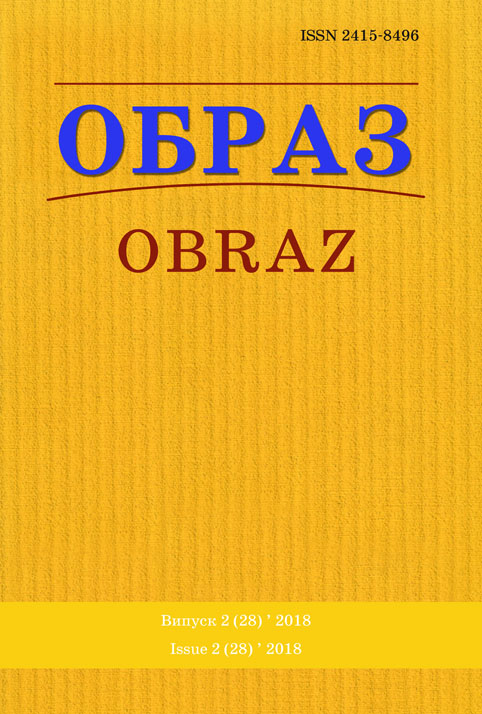Abstract
Introduction. Persistent attempts of Ukraine to join the European Union require the study of the experience of European countries in the formation of national media systems. The definite place in this context belongs to Germany, and specifically to such segment of the media, as an alternative press. The study of the German experience in the context of the development of alternative periodicals is important for Ukrainian science, since it is unique in the mass media in Europe. The research of this press, and in particular its current trends, will allow to extrapolate the results to the Ukrainian mass-media market in the future, since this issue has not yet been investigated in the theory of Ukrainian social and communicational researches.
The purpose of the article is to find out the current trends in the German alternative media discourse.
Research methods. Comparative-historical method has allowed to trace the transformation of the alternative press in general (registration, presentation on different media platforms, editorial policy, etc.). The typological method made it possible to systematize an alternative periodical and to select its separate groups. The method of qualitative analysis allowed on the basis of the obtained statistical data to describe the general tendencies of the development of alternative periodicals. The method of monitoring was used to determine the level of representation of alternative publications in the online space.
Results. Alternative print media, as well as any other media, are responsive to changes taking place in the mass media. Since the mid-1990s, the media have undergone a significant impact of the digital technologies, which have led to the transformation of the media market, especially in the print segment. The virtualization of the information space led to a decrease in the role of printed periodicals. Interestingly, the German alternative print media began to go online parallel with the traditional media. We emphasize that almost all of the alternative German press at the present stage of the development of mass-media discourse is represented in the online space.
The electronic version of the alternative press, which is an invariant of print versions, performs several tasks: they are posted on the online network in order to declare themselves; attract the attention of a potential reader; such media become a unifying platform for social formations; they carry out informational, partly propaganda functions, as well as marketing (promotion of their online editions) functions. In order to remain a significant segment of the media market, the alternative press is modified, mastering new web technologies. Subsequently, alternative editions remain powerful players in the media industry, trustworthy, and reliable representatives of information and initiators of debate.
As a future research we can single out a detailed investigation of the examples of electronic alternative publications to compare their structure with the electronic versions of traditional periodicals.
References
1. Weichler, Kurt. Die anderen Medien : Theorie und Praxis alternativer Kommunikation. – Berlin, 1987. – 601 s.
2. Podstavko E.N. Classifications of the online publications of ru.net // Nauchnie vedomocti Belgorodskogo gosudarstvennogo uiversiteta. Seria «Gumanitarnie nauki». 2011. № 6. P. 264– 269.
3. Orehova О. Е. Tendencies of the market of magazines of Germany at the present stage. URL: http://mgimo.ru/upload/iblock/4b5/orekhova.pdf.
4. Tonkih I. Yu. The problem of the typology of Internet media. URL: http://eir.zntu.edu.ua/ bitstream/123456789/994/1/Tonkikh_The_Internet_mass_media_typology.pdf.
5. Lukina M. M. Mass media in the domen ru: chronicles, numbers and types // Vesnik Moskovskogo universiteta. Seria 10 «Journalistika». 2001. № 6. P. 63–73.
6. Sjurts I. Strategien in Medienbranche: Grundlage und Fallbeispiele. Berlin: SpringerVerlag, 2015. 523 S.
7. Fuchs C. Alternative Media as Critical Media // European Journal of Social Theory. Salzburg: SAGE. 2010. № 13 (2). S.173–192.
8. Hüttner B., Leidinger C., OyG. Printmedien, Freie Radios, Archive&Verlage in der BRD, Österreich und der Schweiz. Neu-Ulm: AG SPAK Bücher, 2011. S. 279.
9. Textbook in cross-media / vydav. : Ioanna Narcica Cretsu, Michail Gusun, Lyubov Vasylyk. Schiller Publishing Youse: Bonn / Germany – Sibіu / Romania, 2015. 140 с.
10. Stechkin I. Learn to listen. URL: http://convergencelab.ru/science/inves tigations.html.

This work is licensed under a Creative Commons Attribution 4.0 International License.
